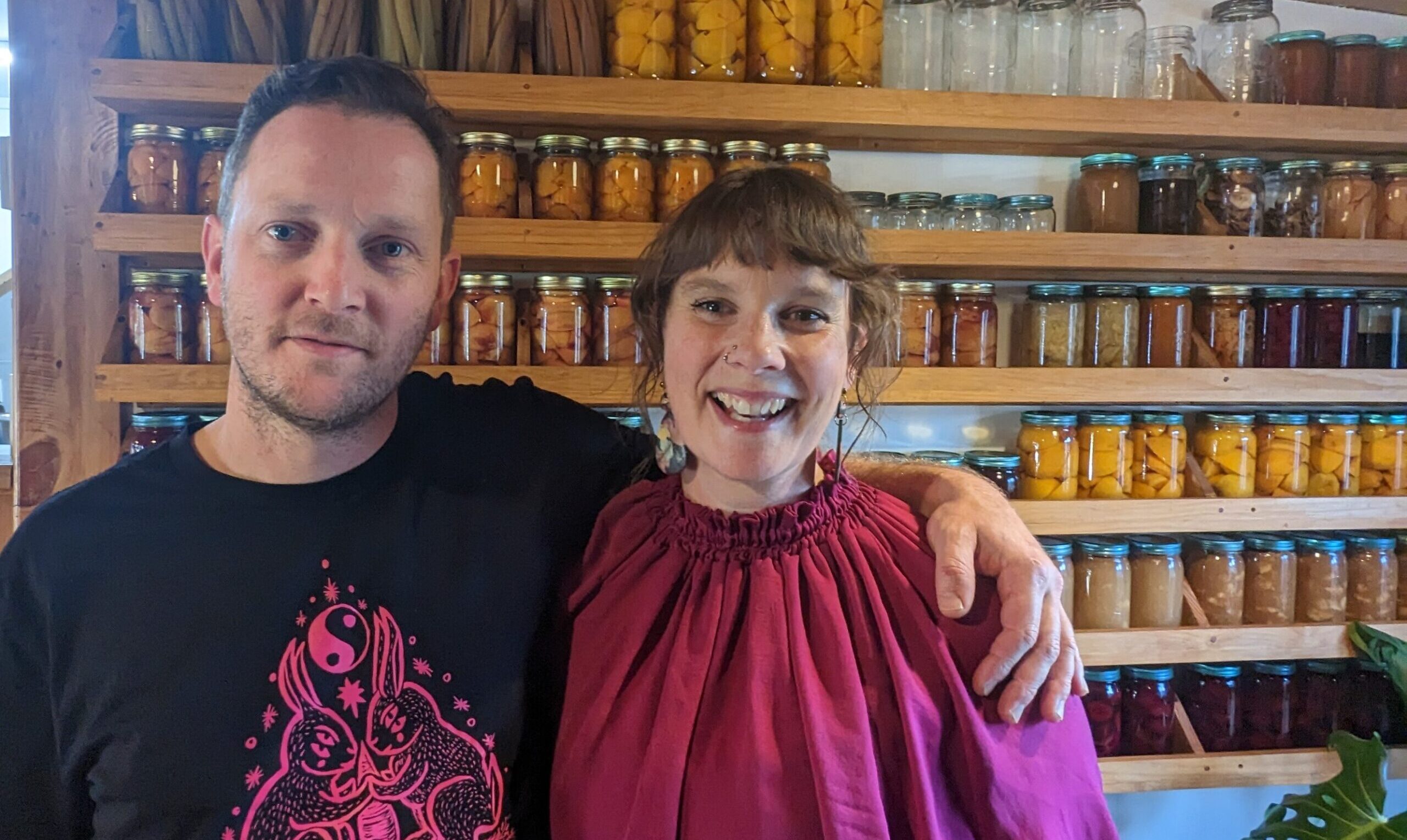
With two decades of experience in the hospitality industry and a background in organic gardening and sustainable farming, qualified chefs Laura and Rob launched a food truck Dukes of Sandwich - but after six years, they decided it was time to settle down.
“We wanted to put down roots, literally – somewhere we could grow our own vegetables. Our dream was to create a space that was self-sustaining where people could experience healthy and sustainable food that tastes amazing," Laura explains.
“A good friend of ours saw the café come up for sale in Mangaweka not far from where I grew up and told us we should buy it. We had a good think about it and decided to go for it!”
Four years on, The Duke’s Roadhouse has nine staff members, half an acre of land, and a bustling customer base of locals and travellers, including those needing an EV charge. It's nestled on SH One in Mangaweka, the northern gateway to the Manawatū Scenic Route.
Laura says they do their part to reduce their waste as much as possible.
"Within the café, we have very little food waste. We compost all raw food scraps and paper towels at home. The cooked food and plate waste feeds our chickens, which provide us with fresh eggs. We also collect rainwater, using it for irrigation in our gardens.”
“We recycle glass, cans, milk bottles and tetra packs too. Our landfill waste equates to about one bag per week, which mostly consists of unavoidable plastic. I’ve worked for many places where four rubbish bags go out each day, so getting down to one bag per week is an amazing achievement.”
“We’re setting up a community pātaka kai (food pantry) at the café so we can donate veges and leftover food too.”
Their efforts don’t stop there - Laura works with the local enviroschool, getting the kids involved in gardening and teaching them about sustainability.
The Duke’s Roadhouse also has a strict ‘no single-use cups’ policy.
“We’re part of the Havana Coffee reusable cup scheme. If our customers want ‘take away’ cups, they need to download the app and collect a cup, then they have a couple of weeks to return it.”
“We’re finding the scheme a bit challenging. We can see it would be great value for cafés in the city, but we’re rural New Zealand - our visitors are travelling through or farmers who don’t come into town for weeks at a time. We do have lots of locals who always remember to bring their reusables with them though!”
Alongside environmental sustainability, Laura emphasises the importance of sustainable work practices.
“The hospitality industry is notorious for 60-hour-plus weeks, but we know that isn’t sustainable. We have lots of young mums on board who need flexibility, so other than Rob and me, no one works more than 40 hours a week."
For businesses who want to start reducing their impact on the environment, Laura advises that they start small.
“Everything we do makes a difference, but you can burn yourself out trying to take everything on at once. So start off by focusing on one to two things. Nail those things. Then, take a step back and focus on what else you can do to reduce your impact.”